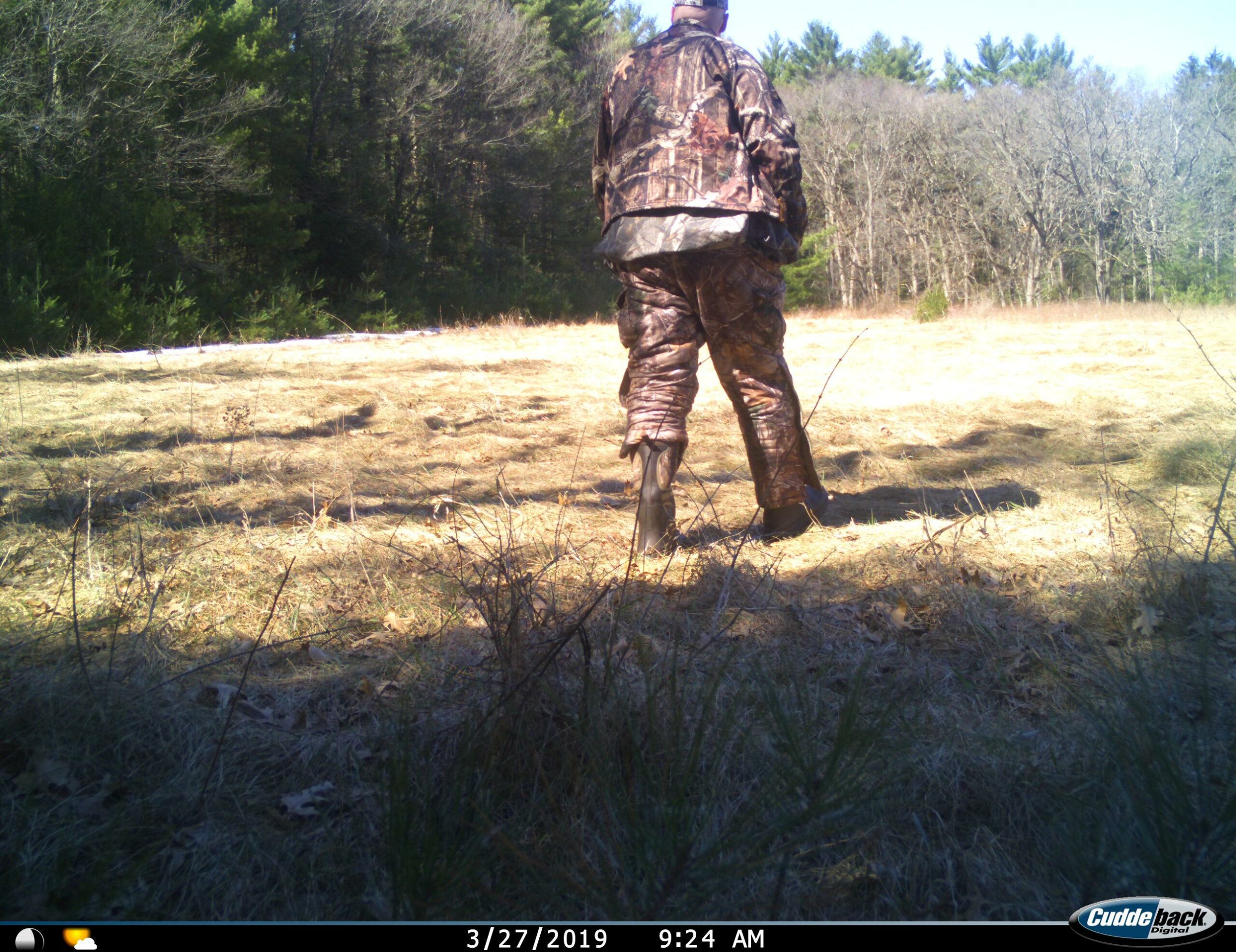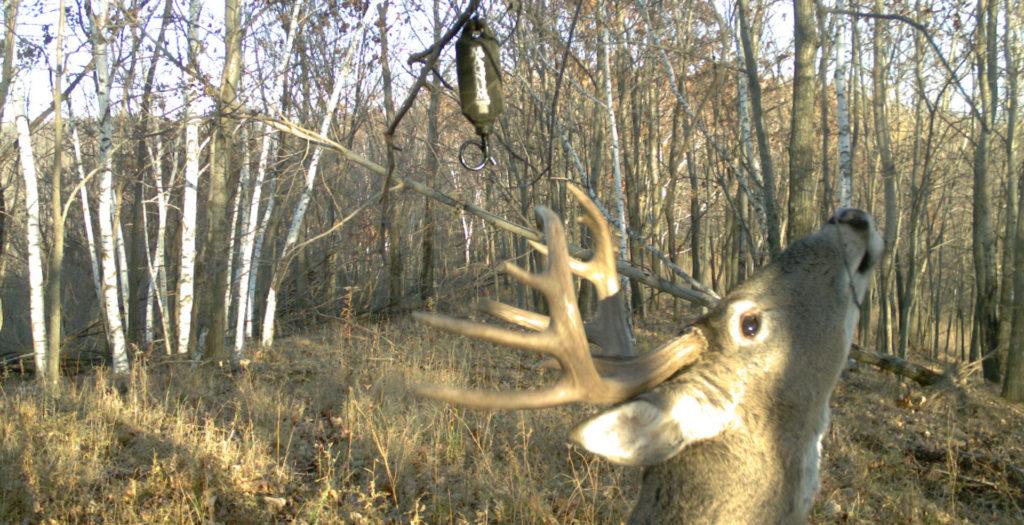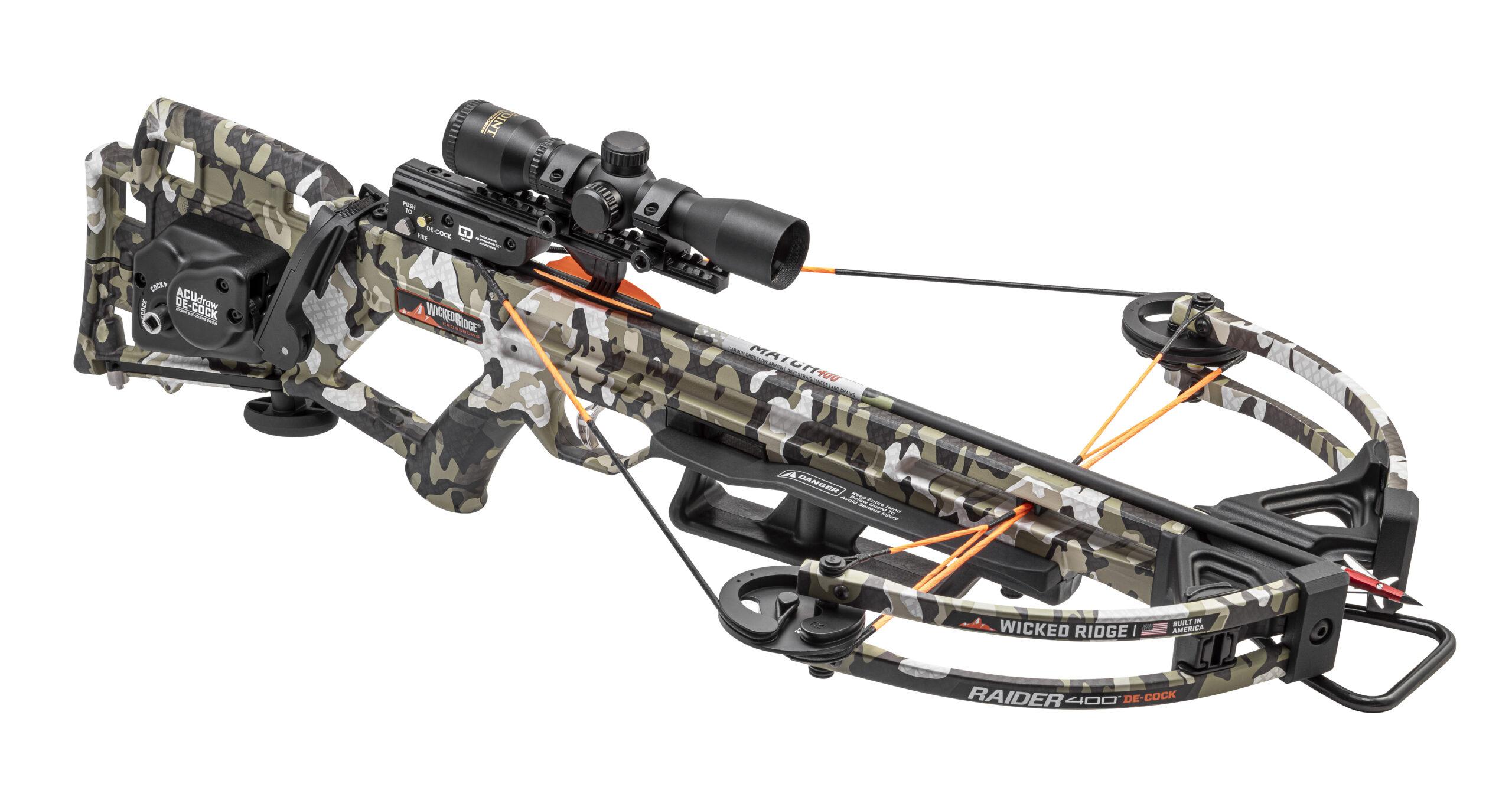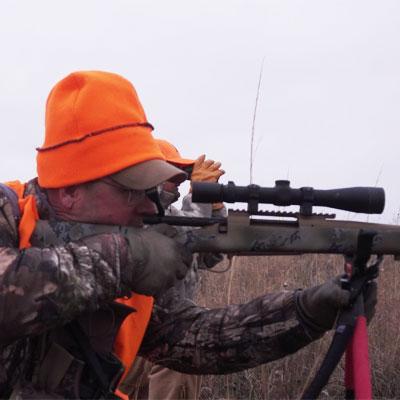The phone rang just after dinner. One of our favorite clients had finally arrowed Ol’ Whatever They Called Him, the 160-class buck he had been watching for the past three years. He had hit the buck “a little back” and the hunter was despondent. “Would you bring Radar and give me a hand tracking him?” I said sure, and we grabbed our tracking dog and headed out the door, after calling the game warden to give him a heads up. He returned the favor by reminding us that our client and his neighbor to the south were at war with each other and the neighbor would not take kindly to any line crossing. Wow, a 160-inch buck lying out there somewhere and no chance of recovering him if he went south. What a mess. How the heck could a war with a neighbor have gotten this far?
Sadly, we see it all of the time. My son Neil and I have been in the wildlife consulting business for the past 25 years or so and managing neighbor relations is one of most common topics we discuss with our clients. Believe me, a war with a neighbor is the last thing you want in a hunting property. It can easily get out of hand and can absolutely take the joy out of hunting. Our clients are constantly asking for advice on handling troublesome neighbors and/or trespassers. The trouble is, by the time it comes to our attention, their problems with neighbors have gone too far to fix. If ever the axiom, “An ounce of prevention …” were true, it’s in the realm of avoiding a war with your neighbor.
1. Get to Know Your Neighbors
One of the best ways of getting along with your neighbors is to know them before you ever meet them. Part of doing your due diligence before buying or leasing a piece of hunting property is to investigate the neighborhood. Grab some tax maps and find out who you will be bordering. Is the neighborhood loaded with junkyard dogs chained to 55-gallon barrels out back? Is the front yard littered with wrecked cars? Does the garage have dozens of racks of 1½-year-old bucks decorating the doorway? Does a sign reading “Happiness is a Steaming Gut Pile” greet you at the entrance to their camp? These, of course, are all red flags. And when it comes to neighbors, the rule of thumb is generally the fewer the better. You will have many more issues with 12 neighbors than with two.
Arrange a meeting with your local game warden and/or sheriff. Explain that you are one of the good guys, plan on obeying the law, and will work with them and never against them. Explain that you are interested in buying a property in a certain area and tell them what you are planning to do with the property. They will know who the chronic troublemakers in the neighborhood are and tip you off if you are headed for trouble. If they tell you you’re headed for trouble, walk away from the deal or at least proceed with caution. You’ll be glad you did.
2. Maintain Good Fences
A little over 100 years ago, Robert Frost wrote that line about fencelines between neighbors. He and his neighbor walked the stone wall between their properties every spring to repair the damage done during winter. Lines are important and have a great deal to do with how you and your neighbor will get along and interact.
Frost and his neighbor may have had a “you hunt me, and I hunt you,” relationship but that was a long time ago and is pretty much a thing of the past. For starters, it is dangerous to not know who is on your property and why they are there from a hunting perspective. And it’s impossible to manage a deer property with people traipsing all over it. You are going to have to post it against trespassing. And how you post it will have a lot to do with how you and your neighbor get along.
If you want to have good relationships with your deer-hunting neighbors you should think it through a little before you grab a fist full of posters and head for the woods. This will often be the first impression you make on your neighbors. Your goal is not to be the meanest dude on the block, or to look like a landowning neophyte. You want to come off as solid and sensible. Keeping your posters on the right side of the line will start you off on the right foot with your neighbor. His have been up a long time before yours and he knows it. Your posters might raise some eyebrows but you don’t want them to be a red flag and label you as a land grabber.
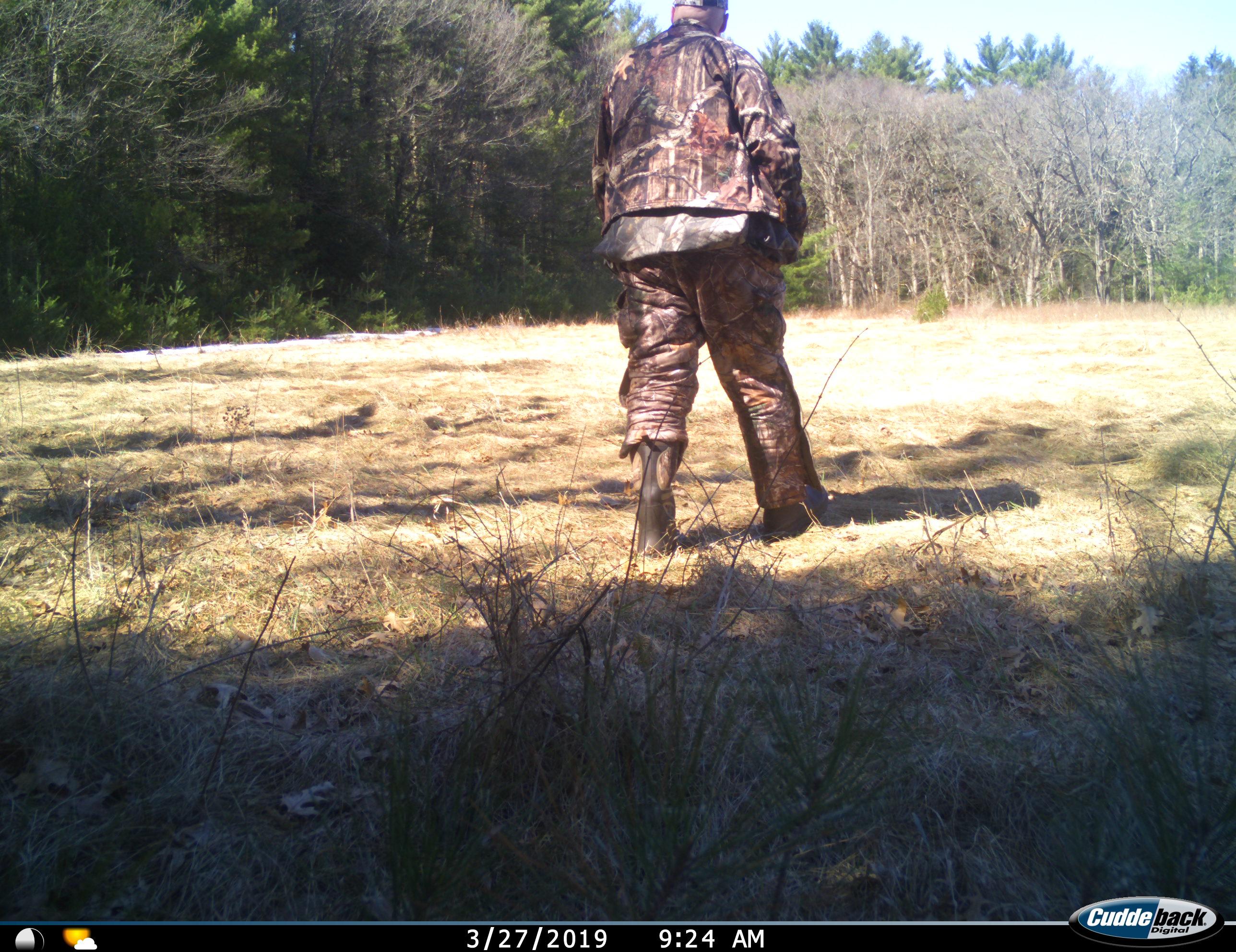
Landowners are generally very possessive about their land ownings, even those they are not using. Respect your neighbor’s lines with your posting. Nothing looks worse and identifies you as a land rookie as tacking up a sign on every other tree. You might think super dense posting sends a strong “tough on trespassers” message, but it will do little more than tell the world that you don’t even know how to post. Typically, new owners over-post their properties. Before you post, ride around the area and have a look at how the locals post their properties. Put yours up exactly the same way, no more no less, and use high-quality metal posters with backer boards. Anyone who has ever posted their land will recognize that you are serious about identifying your lines — serious without being obnoxious.
And one more little trick. Posters announcing the property is under the watchful eye of remote cameras have proven to be great deterrents. Poachers and trespassers hate remote camera technology. Having the neighborhood know it’s under constant surveillance won’t hurt you a bit. You don’t need to announce it on every tree but a little camera warning in every pull-in area will go a long way and set the tone for your first official conversation with the neighbors.
3. Stop by For a Courtesy Visit
The new posters will give you a perfect excuse to call on your new neighbors. Stop by and introduce yourself. Tell them you are posting your property for safety and security reasons. Don’t push too hard on the quality deer management side of the equation because some landowners oppose the concept out of custom and/or tradition. Offer to walk the line with them and adjust any posters they feel might violate the line. If they take you up on your offer, be sure to have any surveying information with you should a difference of opinion arise. Usually the guy with the best documentation wins, but the survey should be the last word. Hopefully you have already learned the lines and know where all of the evidence is. The mission here is to make friends with the neighbor and send an “I’ve got my landowning act together” signal at the same time.
Tell them you are going to be doing a lot of hunting on the land and you have put out a lot of scouting cameras to help you keep an eye on comings and goings (of both deer and humans). Tell them you have cameras watching the roads and other access points and you will be happy to share pictures if they ever have a problem with trespassers or break-ins. In other words, tell them you are employing cameras for both security and game management purposes. Don’t show them where they are, it’s best to have them believe they are behind every tree. The objective here is to position yourself as a good neighbor who “trusts but verifies” when it comes to securing his property.
While you are on the subject of boundary lines, tell your neighbors it is fine by you if they enter your property to track and recover a wounded deer. Offer them a permission slip to recover wounded deer that has all your contact information on it. Hopefully, they will get around to doing the same. Tell them you would appreciate a call if they should have to enter your property to recover a deer because the cameras will probably pick them up, and letting you know they crossed the line will save everyone a whole lot of trouble. This sends the signal that you are an OK guy, but on top of the trespassing situation.
If your neighbors don’t reciprocate on recovering wounded deer, don’t put them on the spot with an “ask” just yet. Give them some time to think about it. They might need to get to know you a bit more before offering permission to recover game on their side of the line. If a recovery event should arise, by all means contact them and ask permission, but don’t put the pressure on them the first time you meet. Get to know them a bit before asking for the courtesy. This is more of a judgement call than an automatic thing, letting them offer the courtesy is generally a better idea.
4. Be a Good Neighbor Yourself
Now that you are up and running it’s important to be a good hunting neighbor. Nothing annoys a neighbor like a newcomer crowding him by hunting the line or otherwise interfering with his hunting program. Just because he hunts the line doesn’t mean you have to. Keep your stands back from the line. A good rule of thumb is out of sight, out of mind. He will know you are there when the shooting starts, you don’t need to remind him of it every time he walks the line or hunts a line stand. Plus, it’s unsafe to crowd the line.

Don’t mess with the natural flow of things. Your neighbor might use food plots to feed and concentrate deer. Hopefully they are well in from the line and you won’t even know what his plots are attracting. But if they are close enough for you to see, they are generally close enough to influence deer movement on your side of the line. It’s fine to take advantage of this movement, but try not to negatively impact his deer hunting by doing so. It’s one step from hunting his line when it comes to hunting ethics. Nothing is more annoying than seeing a line of orange clad hunters keying in on the food source you worked so hard on last summer. He can’t stop you if you are on your own property, but he sure can get mad at you. Never, ever shoot onto another man’s property.
5. Learn How to Deal with Bad Neighbors
Up to this point we’ve been all about sending the right signals and being a good neighbor, the assumption being, if you are a good neighbor maybe he will be as well. I’m sad to report that the majority of our calls are about how to deal with problems with bad neighbors. You know, the ones who run all over your property, never let a buck grow up and on occasion, the type of guy who won’t even allow you to cross the line to track a wounded deer. I’ve given you all kinds of suggestions for preventing neighbors from becoming problems, but not much for dealing with them.
That’s because it is almost impossible to generalize and make absolute recommendations about how you can and should deal with a bad neighbor. You can put up a giant blue tarp or plaster the area with posters across from where he is camped out on the line. Or change your access road or catch him on hidden cameras or move your food plots or put up a fence or cut down a specific tree. We sometimes tell them, “Sell and get out,” but that’s not why you’re reading this article. That’s not why people call us every week, if not daily, to ask what to do with a problem neighbor. Problems are easier to avoid than to fix. If we can say one thing for sure, you really have to know your neighbor if you are going to fix your problem with him. Take solace in knowing that you are not the only person having them.
We used to recommend leading by example. Pass around plenty of pictures of a full meat pole and plenty of game camera pictures of big bucks. “See what can happen if you let the little ones turn into big ones.” This is where you really get to know your neighbor. Sharing big buck pictures and success stories can work wonders, but only if your neighbor is smart about it. If he blabs about your success all over town you are likely to have half the town running all over you. Every friend who drinks a beer with the neighbor will be getting invited to come out and hunt next to the big buck factory. If he’s tight lipped and plays it smart, he will learn from your success and start working with you not against you. He just might start letting young bucks grow and begin monitoring fawn recruitment and herd health. He will embrace sound management practices and begin to hunt accordingly. We’ve seen it go both ways. Bottom line: Read your neighbor and divulge your information carefully.
6. Drop the Hammer — Only If You Have To
Sometimes you have no choice but to drop the hammer on that neighbor who just won’t toe the line. It might be him, but it could also be his brother-in-law. You’ve heard enough of his fake deer recovery stories to know he is a chronic trespasser and/or poacher. You know for sure he is baiting ’em up and baiting is flat illegal where he is doing it. He might as well be robbing a bank. And that’s exactly how to view it — your neighbor is stealing from you. It’s illegal and it must be stopped, now!
Drop a dime on him and call the warden! Don’t confront him. That’s the job for law enforcement. If you don’t know who’s doing the violating take a picture of his back tag, get his ID or license plate and get away from him. Don’t press the issue, you might get more than you bargained for. But do press charges!
Sooner or later, with most bad actors you are gonna get the law involved. Once you get to the point of calling in the law, you must understand you are past the point of no return. We deal with this all of the time. Client after client refuses to press charges on poachers or trespassers.
7. You Can’t Ignore the Problem
Not following through will serve only to perpetuate the problem. If you go through the trouble to get the law on it, you have to follow through. This is where most people go wrong. They try to treat game wardens and sheriffs like they are councilors. “Having a little talk” is not what the law enforcement guys are interested in doing. They didn’t go to counseling school. They came out to arrest a poacher or trespasser. They write tickets and arrest people. If you are going to involve the law, be prepared to follow through. Otherwise you are wasting everybody’s time and the problems will continue. And believe me when I tell you that word of an arrest gets around fast and the locals will know those signs on the lines mean what they say: “Trespassers Will Be Prosecuted!”
This article is a tribute to our dear friend and longtime contributor Dr. Craig Dougherty. He first offered these tips in 2016. Craig left us in 2019. His wisdom remains in print and online at northcountrywhitetails.com.
D+DH In-Depth is our premium, comprehensive corner on America’s No. 1 game animal. In this graduate-level course, we’ll teach you about deer biology, behavior, and ultimately, how to become a better hunter. Want to be the first to get our premium content? Become a D+DH Insider for FREE!
Check out these other D+DH In-Depth articles:




